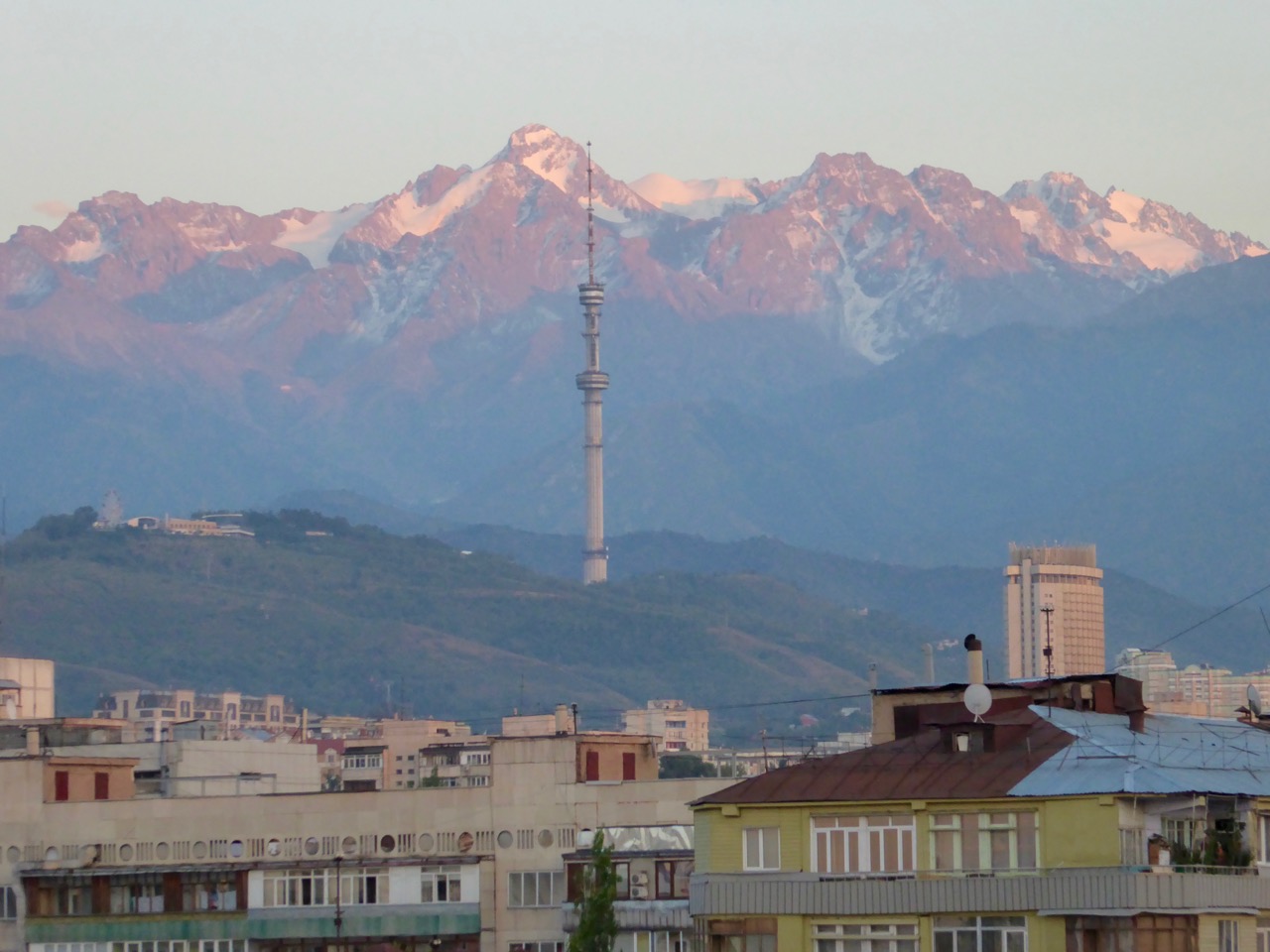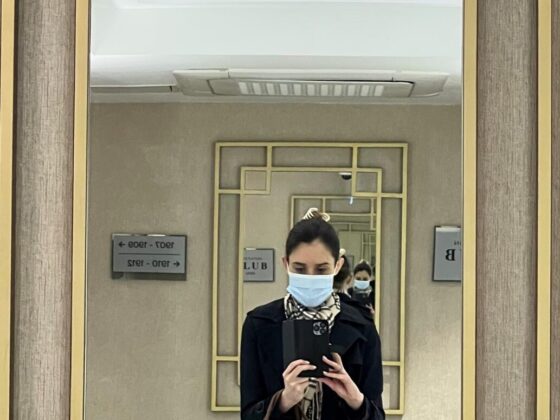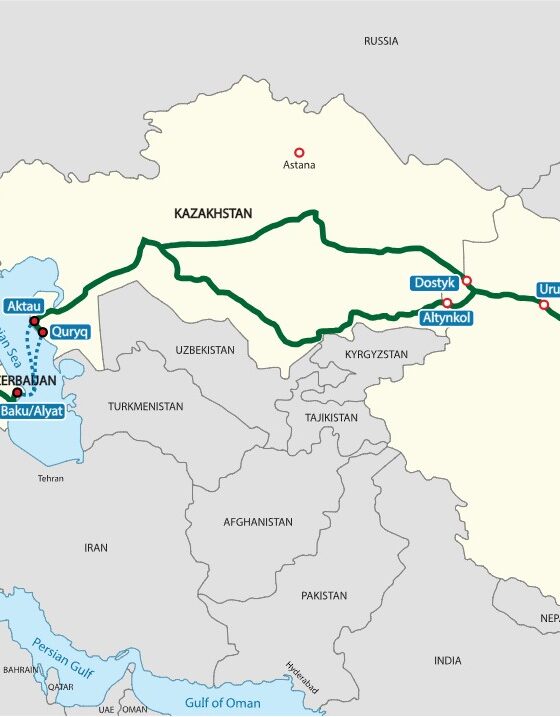A CASE STUDY OF USAID IN KAZAKHSTAN
By Sebastien Peyrouse, PhD, Director of The Central Asia Program, The George Washington University
U.S. and other foreign donors have engaged in Kazakhstan to support the development of an independent and sustainable civil society, which they see as a pillar of democratization, human rights, and economic and social development. Yet thirty years on, Kazakhstan remains an authoritarian country with a spotty human rights record and constraints on independent civil society. In 2022, Freedom House classified the country as “not free,” with a score of just 23 out of 100. Kazakhstani political figures, endorsed by regional players like Russia and China, have repeatedly claimed the necessity of prioritizing economic and social development over democratization, which they have decried as a Western-centric concept unsuited to the local context and associated with supposed Western campaigns to destabilize the country or launch color revolutions. Although the Kazakhstani government claims to have made significant investments in economic and social development, the population continues to struggle to access quality education, find good jobs, or even just make ends meet. These challenges fed the resentment that led to the January 2022 turmoil.
Based on 15 interviews with civil society activists in Kazakhstan, this memo outlines how foreign funders should revise their approach to supporting the development of truly independent civil society. Activists’ main recommendations include working with a larger number of smaller partner organizations and engaging with more segments of the population by identifying partners in more rural regions. These changes would make it possible for the civil society organizations (CSO) sector to promote human rights rather than merely provide services that the government lacks the means or will to offer.
A Restricted and Repressed Civil Society
Since he took office in March 2019, President Tokayev’s promised reforms to democratize the political system and strengthen respect for human rights have remained mainly cosmetic. Worried about anti-government opposition, the Kazakhstani political authorities have imposed a strict legislative framework that has hampered the development of civil society. All CSOs must be registered within two months of the start of their activities; unregistered ones are strictly prohibited from working and their members subject to administrative and criminal liability if they do. CSOs must further submit annual reports to the Ministry of Information and Community Development in which they detail all income and expenditures, as well as all projects funded from both domestic and foreign sources. The threshold for reporting money and other assets to the tax authorities is set at 1 tenge (USD 0.002).
In addition, the government has asserted control over civil society through various administrative means, including the misuse of vague laws on extremism and terrorism; severe restrictions on freedom of expression and strict monitoring of social media; tight limits on freedom of media and freedom of assembly; and harassment of CSOs that attempt to address politically sensitive issues. The violent crackdown on initially peaceful protesters and mass arrests of some 10,000 protesters that followed the January 2022 unrest demonstrated the government’s authoritarian approach to civil society.
Urging More Effective Engagement in Support of Local Civil Society
The United States and USAID in particular have been engaged in several sectors of assistance that combine support for democratization and human rights with economic and social engagement. These include liberalizing the economy, developing regional business and trade connections, modernizing the energy sector, strengthening water resource management, and improving education and health services.
Although interviewees welcomed this commitment, they almost unanimously contrasted USAID’s stated goal of promoting civil society with the more limited impact of its programs on the ground. Given the authoritarian context and threats of donors being kicked out of the country, they perceived that USAID and many other foreign funders had engaged in self-censorship over the past 20 years, downgrading their commitment to democratization—including commenting on the events of January 2022—and instead focusing on sectors that are less sensitive for the government, such as economic development, corruption, and governmental decentralization. According to them, the few programs on human rights that foreign funders have supported—for example, on the abolition of the death penalty—were pre-approved by the Kazakhstani government and used by the political authorities to improve their image abroad, but did little to support independent civil society.[1]
This approach by foreign funders has not challenged, and may even have unwittingly endorsed, the government’s determination to limit civil society to implementing apolitical social projects, particularly in areas where the government itself has no means or appetite for action. As official Kazakhstani statistics show, the overwhelming majority of the 22,000 CSOs registered in the country work to support socially vulnerable segments of the population, while only 2 percent are engaged in promoting the development of civil society per se. Like other authoritarian countries, Kazakhstan takes a centralized, top-down approach to economic and social policy. This has prevented independent CSOs from actively participating in the formulation of state policies, relegated them to the fringes of political and civil society activism, and undermined the public’s ability to hold the government accountable.
Revising Engagement Patterns
Against this background, interviewed CSO representatives urged foreign funders not to confine their programs to government-approved areas, but rather to engage more in promoting human rights and independent civil society. For local activists, this would entail donors addressing their lack of connections at the grassroots level. This issue stems from an approach to selecting local partners that has limited foreign funders’ number of partners over the past decade, prioritized partners located in big cities, and resulted in insufficient interaction with some segments of the Kazakhstani population.
Of course, it can be difficult for donors to select and cooperate with local partners in authoritarian regimes. Governments in the region have sought to undermine independent civil society while promoting a positive image of their respective countries by setting up their own civil society organizations—often called governmental non-governmental organizations, or GONGOs—that support official policy. These organizations benefit from easier and faster registration procedures, win the majority of funding bids, and are much more likely to be selected to participate in platforms for dialogue with the government and in government decision-making processes.
While we lack precise data, activists estimate that the overwhelming majority of CSOs—as many as 70 percent in major cities—receive some or all of their funds from the state and can be considered GONGOs. Although interviewees acknowledged the necessity of working with a variety of stakeholders, including some GONGOs, they emphasized that foreign funders need to avoid the pitfall of working with those GONGOs that primarily serve as a mouthpiece for the government and its authoritarian politics. They cited as a particular example the Civil Alliance of Kazakhstan, an umbrella organization that includes more than 3,000 organizations and activists in Kazakhstan, singling it out for almost systematically approving of all government policy and for being used to showcase the so-called flourishing of civil society.
Moreover, over the past decade, funders like USAID have significantly reduced the number of local CSOs with which they partner. Instead, they have preferred to engage in larger projects that involve a limited number of U.S. and local partners they trust. These large grants are easier to administer than grants for a larger number of smaller projects; the latter approach would also require more staff. Interviewees further expressed the view that subgrantees have often been selected because they would not cause friction with local authorities. Finally, the large overhead costs imposed by some subgrantees with which the United States or the EU partner work with, such as the Eurasia Foundation or ARGO in the case of USAID, have often eaten up the limited funds available, making it harder for smaller, local CSOs to receive the funding they need to survive and develop.
One respondent described this approach as “feeding big fishes while small fishes die.”[2] The lack of external funding means many small CSOs find themselves trapped into taking money from the Kazakh government. This not only strengthens the latter’s capacity to frame and monitor the narrative and activities of civil society, but has also created a vicious cycle in which these CSOs—as recipients of state funding—find it extremely difficult to criticize the government.
In addition, interviewees reported that the geographical concentration of USAID’s funding in a handful of large cities has further weakened its connection to the local population. Outside of the country’s two largest cities (Astana and Almaty), USAID’s engagement has mostly focused on socioeconomic issues and hence has not contributed significantly to the development of independent CSOs. Such groups in the provinces face a particular struggle to access funding, including foreign funding.
Finally, interviewees complained that foreign funders are less engaged with Kazakh-speaking organizations and populations than with Russian-speaking ones, a situation possibly exacerbated by these funders’ lack of Kazakh-speaking staff.[3] Language remains a particular barrier for local CSOs, especially in rural areas where Russian may not be widely spoken. Foreign funders are hence failing to reach an important segment of the population that could be actively involved in civil society. During the January 2022 unrest, the demonstrators were overwhelmingly ethnic Kazakhs and Kazakh-speakers; while part of this population is often considered conservative, another part clearly mobilized for change.
Overall, representatives of CSOs expressed the view that foreign funders’ current approach has not significantly improved the capacity or independence of local CSOs.[4] Funders corroborated this perceived lack of capacity on the part of the existing CSOs, lamenting that these organizations seem to take an outdated approach: they are “still carrying their suitcases from the 1990s and the early 2000s filled with the same projects and approaches.” Funders recommended that CSOs should become more analytical and inventive.
Moreover, the scarcity of funding has produced an atmosphere of aggressive rivalry among CSOs, pushing organizations to work on topics that interest funders and align with funders’ expectations rather than pursuing their own agendas, as well as by proposing politically neutral projects instead of taking bolder approaches that might address the real issues on the ground.
This situation may only deteriorate with the passage of time. Immediately after the fall of the Soviet regime, the younger generation was introduced to democratic concepts and trained by USAID and other funders. Over the last 20 years, however, funders’ overly cautious support for the development of civil society, combined with a reduction in the number of donors active in the region and limited available funding, has meant that young people have not been able to develop the same understanding of democracy and civil society as their forbears. Indeed, this situation may even have pushed them to accept authoritarian government control. As asserted by several representatives of CSOs, the younger generation engaged in CSOs has evolved over the years from a generation that was aware of the political situation to a new one that generally avoids engaging on the issues of independent civil society, human rights, and democracy.
Conclusion
Civil society provides the basis for holding state power accountable and serves as an essential catalyst for social, political, and economic progress by giving citizens the freedom to create and develop new ideas, and freely advocate for change without fear of retaliation. An independent civil society generates opportunities for participation and influence at all levels of governance, including at the local level. A series of protests in Kazakhstan—particularly the widespread protests in February 2019 sparked by a fire in Astana that killed five children and the January 2022 unrest in which, according to official figures, at least 238 people were killed and 1,000 wounded—demonstrate the necessity of helping the population enhance their ability to address economic and social issues and hold the political authorities accountable. This is particularly difficult in a neo-patrimonial political system that has allowed political elites to prosper at the price of maintaining deep social inequities. President Tokayev’s statements notwithstanding, there have been few tangible signs of liberalization. Fundamental freedoms continue to be curtailed, while those who criticize or challenge the government’s policies are persecuted.
In parallel, the past two decades have witnessed a decline in the number of donors supporting CSOs in Kazakhstan. Indeed, few actors besides USAID continue to fund and conduct programs focused specifically on the development of civil society. To improve the sustainability of independent CSOs, funders must revise their approach to supporting the development of independent civil society. This would entail working with a larger number of smaller partner organizations and engaging with more segments of the population by identifying partners in the regions (which might require improving funders’ Kazakh-language skills). Foreign funders must overcome local CSOs’ perception that they are comfortable with a civil society confined to providing services under the supervision of the state and instead move toward supporting a truly independent civil society that is able to work without censorship or fear of retaliation.
Sébastien Peyrouse is the director of the Central Asia Program and a research professor at the Institute for European, Russian, and Eurasian Studies at the George Washington University.
[1] Anonymous interview.
[2] Anonymous interview.
[3] As reported by a USAID staffer.
[4] Anonymous interviews.













